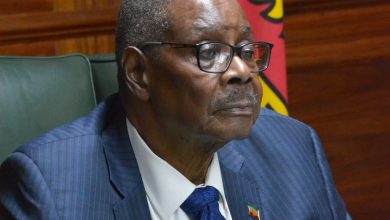Unicef sees aid cut limiting safety nets
United Nations Children’s Fund (Unicef) says the recent reduction in official development assistance (ODA) is a concern as it threatens to limit access to safety nets.
In its highlight of the 2025/26 Citizens Budget, the UN agency also warned of deepening existing vulnerabilities considering that 75 percent of ODA is financing expenditures in social sectors such as health, education, humanitarian and social infrastructure.

Reads the highlight in part: “Against this background, Unicef, therefore, encourages the government to explore innovative financing options to support continued delivery of key social services, including social protection programmes to help cushion the most vulnerable against frequent shocks and rising price levels.”
According to Unicef, Malawi continues to face persistent macroeconomic challenges and weather-related shocks that have negatively affected the country’s economic growth.
Treasury projects the economy to rebound from 1.8 percent in 2024 to 3.2 percent in 2025. However, gross domestic product growth projections by the International Monetary Fund (2.4 percent) and World Bank (two percent) for 2025 show reduced growth.
“[This] indicate continued declining per capita income for Malawi, deepening poverty and inequality amongst households.”
Approximately 75.4 percent of the population are estimated to live below the new international poverty line of $3 per day by the end of 2025.
Ironically, the substantial budget deficits over the past five years have significantly increased debt servicing costs, which now accounts for up to 50 percent of domestic revenues and 27 percent of total government expenditure (TGE) in 2025/26, surpassing the share allocated to education (16.6 percent) and health (9.5 percent) combined.
Presently, the funding of key social protection programmes in Malawi remains significantly funded through donor support which undermines national ownership and sustainability.
On average, government has been contributing five percent to the funding of the social cash transfer programme (SCTP) since 2016/17, with donors 95 percent of resources coming from donors comprising the World Bank contributing 36 percent, Germany putting in 27 percent, European Union (EU) 23 percent, Irish Aid seven percent and Unicef one percent for technical support.
At the same time, government’s contribution to the programme covers only one district, with the other 27 funded through donor support.
However, African Development Bank (AfDB) data show that Malawi’s actual disbursements have fallen short by 61.8 percent of the target in the 2024/25 financial year, following aid cut and US tariff impositions.
The bank said this is compounded by the suspension of $350 million annual funding from the United States Agency for International Development (USAid), the cancellation of the $350 million five-year Millennium Challenge Corporation support and the imposition of an 18 percent tariff on exports from Malawi to the USA.
Minister of Finance and Economic Affairs Simplex Chithyola-Banda projected grants at K1.17 trillion in the 2024/25 National Budget, of which K1.10 trillion was expected from international organisations and K72.69 billion from foreign governments.
This means that at 67 percent, grants would have declined by about K800 billion.
Oxfam in Malawi country director Lingalireni Mihowa indicated that in the face of economic distress and humanitarian shocks, restructuring the social protection programmes to move from just consumption is key.
She said: “It is important to protect the most vulnerable and poor yes, but there is also need to design the programmes that have exit strategies, have sustainability pathways and those that are linked to production and stimulating local economies, not just consumption.
“There is need to limit consumption to marginalised groups who cannot offer labour for cash like the elderly and children so that we generate input for the economy while supporting production.”
Treasury spokesperson Williams Banda earlier said only K9.2 billion of USAid funding appeared in the 2024/25 National Budget, but that the US government off-budget projection in FY2024/25 was about K307 billion.
Meanwhile, the Ministry of Gender, Community Development and Social Welfare, which spearheads social cash transfer hopes to increase its coverage to 15 percent between 2022 and 2027 through the SCTP Strategic Plan 2022/27.
Implementation of this plan will require both increased overall funding and an increased proportional contribution from government to ensure ownership and sustainability.
As at 2022, only 0.11 percent of the national budget was devoted to social assistance in Malawi and Ministry of Gender anticipated this to fall further.





